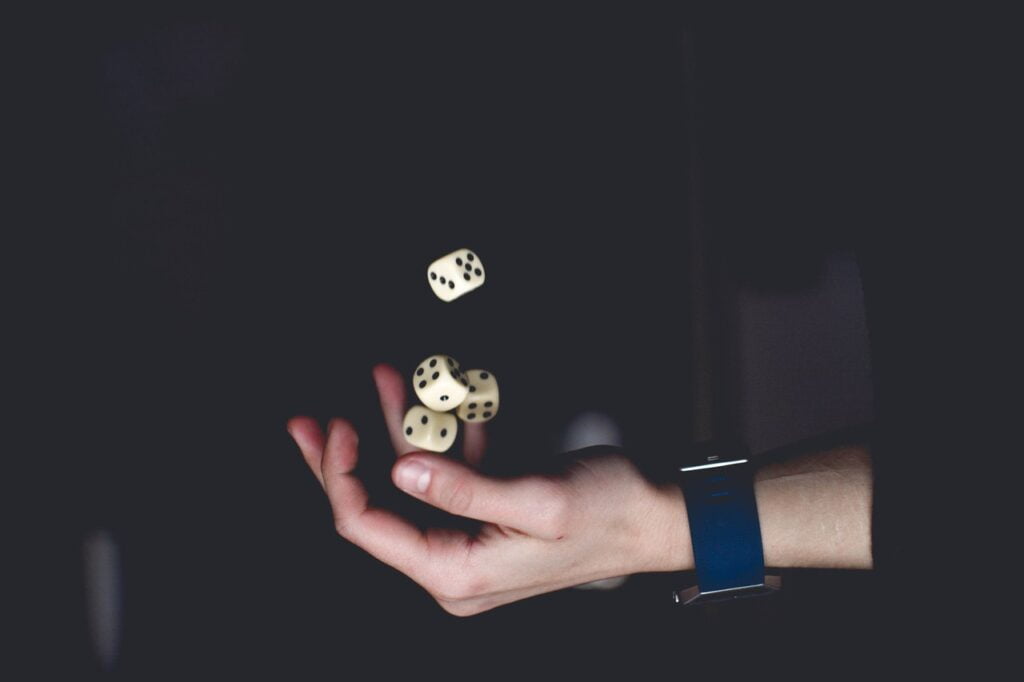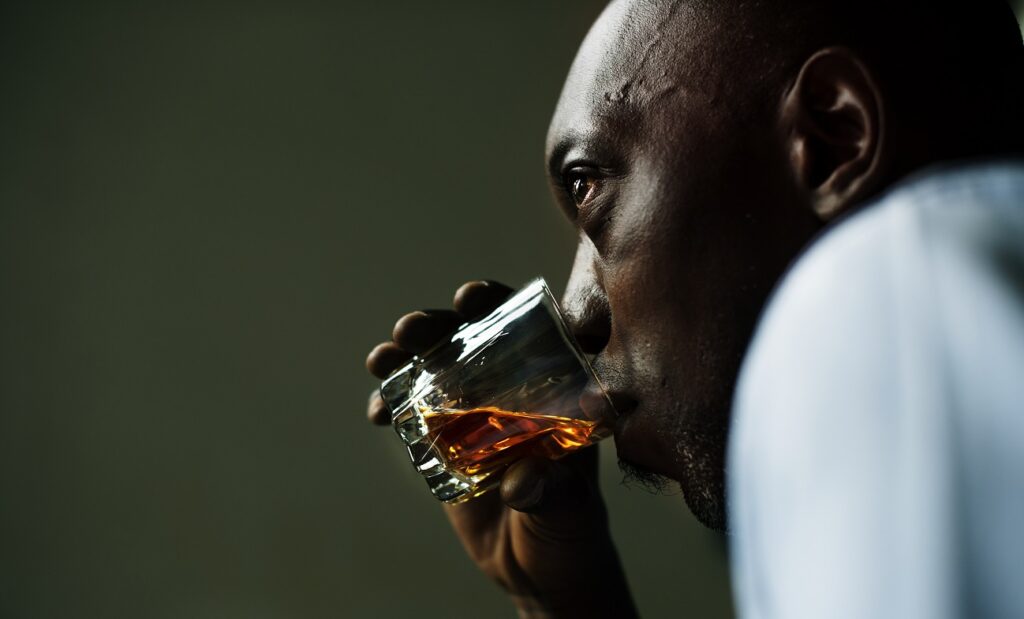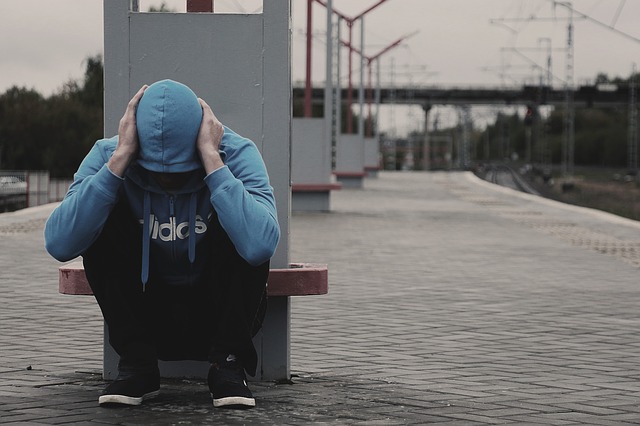- Home
- Addiction Treatment
- Dual Diagnosis
- Alcoholism and Gambling Addiction
Alcoholism and Gambling Addiction
As with most addictions, people are usually attempting to fill an emotional void when they gamble and abuse alcohol.
96% of people with gambling disorder also have another psychiatric disorder.
These two addictions often come as a pair and there are usually other conditions underneath as well.
In the case of this dual diagnosis, mental health has to be addressed.
Anyone hoping to recover has to be ready to start a journey of self-understanding.
The Difference Between Alcoholism And Gambling Addiction

For many years, professionals debated whether gambling could form an addiction.
Unlike drugs and alcohol, which are psychoactive, it doesn’t have a direct and immediate impact on the brain.
However, in 2013 the American Psychiatric Association officially identified gambling as an addiction in the DSM-5 diagnostic tool.
There is no denying that gambling is able to form an addiction.
It is, however, called a behavioural addiction, which works a little differently to those where substances are concerned.
Addiction To Psychoactive Substances

When a person drinks alcohol or takes drugs, the substances have a direct psychoactive effect on the brain, typically causing the release of dopamine and serotonin.
This makes the person feel good and experience pleasure.
The reward system is immediately triggered.
It’s no wonder, then, that for some people it’s easy to become reliant on substances to feel good, especially where the person might struggle to feel good normally.
Of course, addiction develops when a person no longer experiences the high but has come to need substances simply to function normally because they use them so often.
Behavioural And Process Addictions

While the act of gambling doesn’t immediately change brain chemistry the way psychoactive substances do to people, it does trigger the reward system for some.
Some people will experience a release of dopamine.
A person might repeat the gambling behaviour and this act can trigger the dopamine release again.
The more often the behaviour is repeated, the more entrenched it becomes in the brain’s reward system.
Gambling addiction is viewed as a compulsive behaviour.
Symptoms Of Alcohol Addiction

- Drinking more and more alcohol to feel an effect.
- Continuing to drink despite negative repercussions.
- Neglecting responsibilities.
- Family problems raising due to drinking.
- Not being able to stop even when you try to.
- Losing interest in regular activities.
- Obsessing over drink.
- Compulsive drinking.
- Experiencing withdrawal symptoms such as mood swings, shaking, sweating, sickness and diarrhoea, seizures.
Symptoms Of Gambling Addiction

- Spending increasing amounts of money on gambling.
- Being unable to stop gambling even in the face of negative consequences.
- Experiencing a high when gambling.
- Gambling as a way to regulate emotions (i.e. if you feel low or stressed, you might gamble).
- Putting a “limit” on how much you bet but carrying on beyond that point.
- Withdrawal symptoms such as anxiety and irritability are apparent.
- Other withdrawal symptoms might include headaches, insomnia, depression and heart palpitations.
Risk Factors That Make Gambling Addiction More Likely

There are particular background factors that can make some people more likely to develop a gambling addiction.
These include:
- Being a young man
- Having mental health issues, such as depression or anxiety
- Having other addictions, like alcoholism
- Genetics– addictions run in families
- Coming from a lower socio-economic background
The Risks Of Gambling
Developing a gambling addiction comes with many risks.
This is an illness that affects a person’s health, their family and social life, work, and of course their finances.
Isolation

Isolation is a huge factor for people who develop gambling addiction.
Many people spend a lot of time covering up their gambling behaviours.
The more they do this, the more they might feel trapped in keeping the secret.
With the stress it puts on emotional health and finances, this can become a very lonely place.
Addiction is known to be isolating, hence why social connection is valued so highly in recovery programmes.
Finances

Finances come under strain.
People usually lose huge amounts of amounts and tend to build up enormous debts with credit card companies, loan sharks, and the like.
This, of course, can affect a person’s ability to afford regular bills and pay rent.
Relationships

Family relationships come under strain when someone has an addiction.
This might be linked to lying, manipulation, or perhaps the withdrawal symptoms that can be very hard to live with.
Mental Health

Mental health issues tend to arise when people are compulsive gamblers.
Depression is especially high with gamblers being six times more likely to have suicidal thoughts than people who don’t gamble.
The Connection Between Alcoholism And Gambling Addiction

As mentioned earlier, gambling and alcoholism have many similarities in how they activate the brain and can cause withdrawal effects.
People who develop addictions tend to be sensation seeking and impulsive.
Both alcoholism and gambling can bring a type of thrill or high, so it’s important to think about reasons people are drawn to these behaviours.
Both alcohol and gambling offer a type of escapism, a distraction from daily life.
In a society where men aren’t encouraged to be emotional and might feel shamed for expressing their feelings, unregulated emotions manifest in other ways, such as through addiction.

One study showed that 44% of people who had disorganised gambling habits also had an alcohol use disorder.
These addictions exacerbate each other.
If a person loses a bet, they might drink to commiserate.
If they win, they might drink to celebrate.
Someone with a drink problem might gamble to try and cheer themselves up.
There’s an unhealthy relationship between the two.
Why Gamblers Drink

- To settle nerves when gambling
- When craving gambling
- When they have lost money
- When they have won money
- Anxiety around losses
- Socially acceptable to drink in casinos
Addictive Personalities

A person who is addicted to one thing is more likely to become addicted to other things.
This is partly why it’s common for alcoholism to coexist with gambling.
There’s also the fact that addictions run in families.
As well as addiction being more “hard wired” into some people, it can also be learned through the environment.
Many people are even initiated into addictive habits by family members.
Another important element to keep in mind here is how mental health affects potential for addiction.
Gambling And Mental Health

Research shows that gambling is linked to suicidal behaviour.
This is even more so where people have other addictions or mental health issues, such as depression, anxiety and mood disorders.
This type of dual diagnosis is especially common in men.
Dual Diagnosis: Gambling And Alcoholism

A dual diagnosis is where a person has more than one mental health condition.
In this case, it would be gambling with alcoholism.
It’s also likely that anyone with these conditions would also have another mental health condition, such as depression.
When people enter rehabilitation treatment for these types of issues, they will be described as having a dual diagnosis by professionals.
In such cases, people are supported to address all areas through engaging in various treatments.
Rehabilitation Support For Gambling And Alcoholism

The most effective support you can get to aid your recovery around alcoholism and gambling addiction is through a private rehab clinic.
There, you’ll have leading professionals who specialise in addiction support you through top-quality treatments.
Rehab starts with a detox, especially important if you’ve developed a dependency on alcohol.
This lasts around seven days and often includes a Librium prescription so that withdrawal symptoms are minimised.

You might be prescribed medications such as SSRIs if you have a condition such as depression as well.
Both gambling and alcohol addiction have been shown to be effectively treated by Cognitive Behavioural Therapy and 12 Step groups.
Both of these will be a key part of your tailored treatment programme.
As well as this, people participate in a wide range of holistic therapies aimed at rest and relaxation.
While at rehab, a relapse prevention plan is created so that residents are equipped to manage sobriety successfully after leaving the clinic.
Final Thoughts

Gambling and alcoholism often come hand-in-hand.
Sadly, they’re also highly linked to serious mental health issues such as depression and suicidal tendencies.
Both addictions create neural pathways in the brain which make compulsive behaviours especially hard to break.
Recovery is possible. At a private clinic, people are supported to heal from both addictions and around mental health.
This is often the most successful way to begin a new life of healing and healthy behaviours.
To find out all you need to know about rehab options near you, contact Rehab Recovery today.


